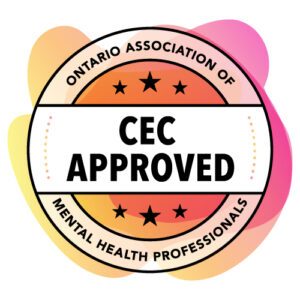RECONSOLIDATION THERAPY™ TRAINING
PTSD affects 15% of people who have witnessed a traumatic event such as accidents, rape, assault, or natural disasters.
Training Offered Online and In-person
Cancellation and refund conditions
If the trainees cannot attend part of or all the training:
They will be offered:
– A postponement of the training to a later date.
– The option to attend the part of the training missed at another date.
– No reimbursement. No refund will be made by the training organization.
Responsibility of the training organization/trainer (except in cases of force majeure):
If the trainer cannot provide the training, the trainee will be offered:
– A replacement teacher. The trainee remains free to refuse this replacement.
– A deferral of the entire training / or the missing days/hours of training.
– A refund of the entire training.
– No financial compensation other than reimbursement for the training will be paid by the training organization in the event of the cancellation of the training.
Force majeure clause for the training organization (the service provider)
In cases of force majeure, the training organization cannot be held responsible for the cancellation or postponement of the training. Cases of force majeure include transport strike or of another nature, pandemic, illness/accident of the trainer or of a member of his family, natural disasters, the failure to obtain visas, work permits or other permits, laws or regulations put in place subsequently, interruption of telecommunications, energy supply, communication or transport of any type, or any other circumstance beyond the reasonable control of the Service Provider – non-exhaustive list.
The trainee will be offered:
– A reimbursement of training.
– A replacement teacher. The trainee remains free to refuse this replacement.
– A postponement of training (of the entire training or only the missing days/hours of training).
– No financial compensation other than reimbursement for the training will be paid by the training organization in the event of cancellation of the training.
Force majeure clause for the trainee (the client)
In cases of force majeure, the trainee cannot be held responsible for his absence. Cases of force majeure include transport strike or of another nature, pandemic, illness/accident of the trainee or a member of his family, natural disasters, the failure to obtain visas, work permits or ” other permits, laws or regulations subsequently put in place, interruption of telecommunications, energy supply, communication or transport of any type, or any other circumstance beyond the reasonable control of the trainee – non-exhaustive list.
The trainee will be offered:
– A reimbursement of training
– A postponement of training (of the entire training or only the missing days/hours of training).
– No financial compensation other than reimbursement for the training will be paid by the training organization in the event of cancellation of the training.
The Training Program
Who is this training for?
This training is conducted at an intermediate level. It is offered to all mental health professionals who have a post-graduate university degree and are legally qualified to practice psychotherapy, as well as to therapists practicing alternative techniques that are recognized.
What are the objectives of this training?
- Differentiate between the various stress and trauma related disorders
- Understand the theory of reconsolidation
- Learn about the studies supporting Reconsolidation Therapy™
This course will provide you with the knowledge required to diagnose and treat post-traumatic stress disorder (PTSD) and adjustment disorder (AD).
The training can be attended in-person or online (e-Learning). Reconsolidation Therapy™ can be practiced online or in-person.
What skills does the training provide?
- 1. Recognize, identify, and distinguish between various stress and trauma-related disorders.
- 2. Understand the theory of memory reconsolidation (neuroscience).
- 3. Know the empirical studies that support the use of reconsolidation in the patient.
- 4. Be able to practice this therapy and method in your professional practice.
This innovative training, based on scientific research and protocols, enables the development of specific skills in the psychodiagnosis and treatment of stress- and trauma-related disorders. It is also possible to treat via teleconsultation.
Training Content and Related Services
Duration of Training:
The Brunet Method™ training comprises of a 16-hour course distributed over 2 days, with an additional ½ day of formal consultation.
Educational, Technical, and Formal Consultation Procedures:
The course curriculum includes:
- A reading program
- A PowerPoint presentation explaining the theory of Reconsolidation Therapy.
- Three treatment protocols (Dx, Rx, and Tx) taught using role-playing games.
- A documentary film – case study.
- Group work in small and large groups.
Course-related material provided:
- Collection of scientific articles.
- A copy of the training PowerPoint slides.
- Diagnostic and medical evaluation forms.
- Detailed treatment protocol.
Evaluation and Follow-up Procedures:
- The training will include a role-playing component in which trainees will have the opportunity to practice the treatment on one another. In doing so, trainees are able to share comments and tips that will improve their technique.
- After completing the course, trainees will have two 2-hour formal consultation group sessions (via Zoom). These sessions are used to discuss any questions or concerns when using the protocol on your patients.
Training-related services
Upon the completion of the training, you are entitled to:
- A training certificate attesting to the completion of the course for the current year.
- A 3-month membership to the Reconsolidation Therapy International Association (RTIA), which provides its member with information on upcoming events and new content.
- Your contact infromation added in the registry of trained professionals in Reconsolidation Therapy™. This is an online registry opened to the public providing access to the list of professionals trained in the Brunet Method™ by country and region.
NOTE: Registration with the Reconsolidation Therapy International Association must be renewed annually to maintain its benefits.
Training Curriculum
Day 1
Official Definitions of Psychotrauma
- Definition and prevalence
- Trauma: a confrontation with the reality of death
- Psychotrauma in the DSM-5-TR (AD, PTSD)
- Psychotrauma in ICD-11 (PTSD, complex PTSD)
- Traumas with a small t (breakups, losses, bereavements)
- Type II trauma (complex PTSD)
- Differential diagnoses
Psychotrauma Assessment (Dx Protocol)
- Presentation of the evaluation protocol
- Comorbidity (drug addiction, depression, dissociative disorder., Axis I and II)
- Suicide Risk
Writing the Trauma Story
- Role play
- Selecting the ‘trauma index’
- What makes for a good trauma narrative?
- Length of the story, the verb tense, point of view (first-person narrative)
- Inclusion of the “hot spot”
Medical Evaluation (Rx Protocol)
- Presentation of the protocol
- Propranolol dosage
- Drug interactions
- Contraindications and serious adverse effects (SAE): what to do?
Reconsolidation Therapy (RT) Documentaries
Day 2
Psychotrauma: A Theory of ‘Disease’
- Learning theories
- Neurobiology of trauma and emotional memory
Psychotrauma: Current Treatments and their Limits
- Current psychotherapies
- Current drug therapies
Psychotrauma: A Theory of ‘Healing’
- Memory consolidation
- Memory reconsolidation
- Discovery of Reconsolidation Therapy™ (RT)
- Studies that support the RT
The First Two Sessions of Reconsolidation Therapy™
- Role play
- Psychoeducation
- The course of treatment session no. 1 and 2.
Reconsolidation Therapy™: Sessions 3 to 6
- Role play
- Sequence of sessions 3-6
- Modifying the trauma narrative
- Introduction to the concept of Mismatch
- Should we do an additional session?
Graduation and Association Role (RTIA)
- Feedback
- The Reconsolidation Therapy International Association (RTIA)
- Formal Consultation Group Sessions
Need more information?
Just “pre-register”
and we’ll get back to you…
You can pre-register to receive more information regarding upcoming training dates and news about Reconsolidation Therapy™.
For further information:
CABA Inc.
North America: +1 514-243-0699
Europe: +33 (0)6 76 45 56 98
Reconsolidation Therapy is practiced globally:
- Psychotrauma Centre – CHU de Tours, France
- Psychotrauma Centre – CH de Poitiers, France
- Coaching Quebec – Quebec, Canada
- Royal Ottawa Mental Health Centre – Ottawa, Canada
- Psychotrauma Centre – Nice University Hospital Centre (CHU), France
- The AP-HP hospital network (20 sites in Paris)
- Asociacion Chilena de Estres Traumatico – Chile
- Hôtel Dieu de France, Lebanon
- Center for Victims of Torture (CEVICT), Nepal
Supported by the Scientific Community:
Dr. Alain Brunet, a specialist in PTSD, has developed an innovative and brief form of therapy that has been recognized by the scientific community as an effective form of treatment to treat PTSD and significantly reduce patients’ symptoms in just six weeks.
He has published more than 250 scientific publications worldwide on Psychological Trauma. To consult them, click below:
Training in this therapeutic method is now offered to physicians and mental health professionals.
Training Accreditations

This continuing education (CE) training offered by CABA Inc. is recognized by the Canadian Psychological Association and entitles psychologists, psychotherapists and physicians to 16 hours of CE credits.

This continuing education (CE) training offered by CABA Inc. is recognized by Quebec’s Board of Psychologists and entitles psychologists, psychotherapists and physicians to 16 hours of CE credits (RA05667-23).

LES CONSULTANTS ALAIN BRUNET ET ASSOCIES, has obtained accreditation for its training “Reconsolidation therapy: foundations and practice.
Participation in this workshop allows OAMHP members to apply 16 hours (CECs) towards their required continuing education hours. OAMHP does not endorse this training or the training provider.


